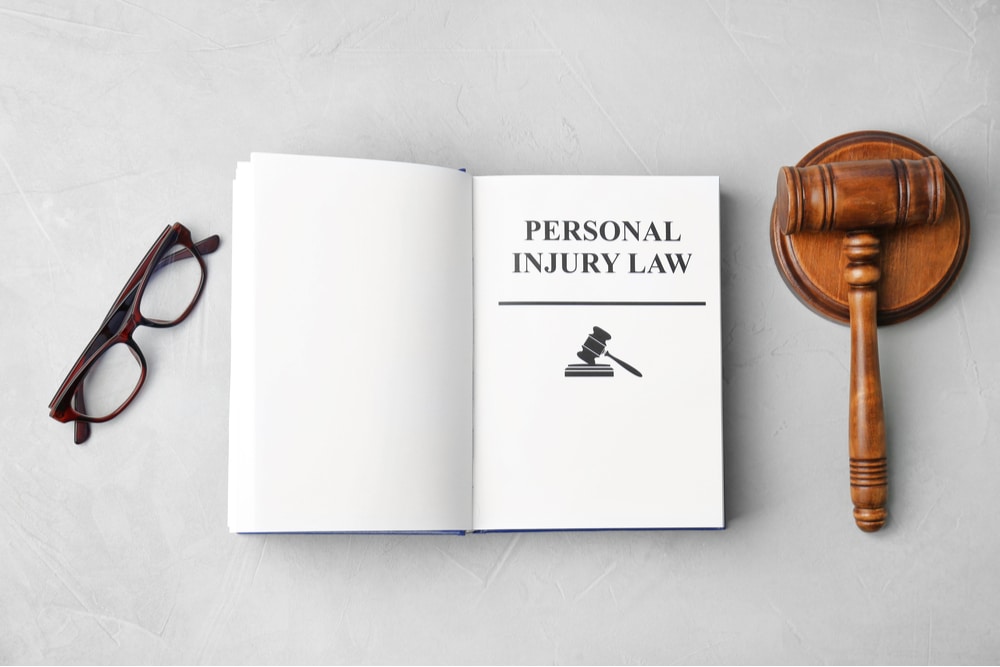What are the different ways an individual can suffer a personal injury in Illinois?
When talking about personal injury in Ilinois usually there are a variety of circumstances where a person would be injured – such as a car accident. Most people understand they can make a claim from a car accident. However, even car accidents vary significantly.
With the decades of experience we have in our firm, we’re able to help identify whether clients have a claim that is protected and if the law will allow them compensation for their injuries. That’s what we do. Those are the cases where we have the bulk of our client base.
However, injuries on the unusual side are when people are not sure if they have rights, which can be protected by our firm. For instance, we have a case where a woman was visiting an amusement park, she stepped out of a bumper car and the floor surface of the bumper car ride was wet, causing her to fall. She was seriously injured and required surgery on her leg.
Most people may think things like this just happen, and there’s nothing they can do about it. However, it’s an attorney’s job to determine if someone has a protectable claim and if they can recover compensation for their serious injuries. In cases where someone may not be sure whether they’re entitled to compensation, we encourage those people to reach out to an attorney.
Do you have to suffer only a physical injury to make a claim, or can it also be an emotional injury?
Psychological injuries are certainly compensable as a personal injury in Illinois. We currently have a case where our client, due to the seriousness of the impact from their accident, suffered symptoms consistent with post-traumatic stress disorder, otherwise known as PTSD.
Within a week of the accident, our client went for psychological treatment and was in treatment for more than 1 ½ years. Our client was diagnosed by a psychiatrist and confirmed by a neuropsychological evaluation that they suffered from PTSD. Our client was entitled to a large settlement at the conclusion of their case.
Many times, a client will say they’re emotionally or psychologically injured from their personal injury, but they don’t seek treatment for those psychological injuries or emotional injuries. If there is treatment and diagnosis of psychological traumas after an injury, they are certainly compensable.
I recommend physically or psychologically injured clients go for treatment for their personal injury in Illinois. Even if there’s not a responsible party for your injuries – I think all of us are entitled to medical care for our injuries.
For example, let’s say we receive a call from a prospective client who was rear-ended at a stoplight, which is a very normal car accident case. However, the accident happened a year ago and the client never went for treatment because they were too busy with work or thought they were not severely injured.
Now a year has gone by and they are finally seeking treatment. Those types of cases are difficult to recover compensation for personal injury clients.
I always put a case in the perspective of a jury. If I take a case to a jury trial, you must remember jurors are regular people just like the client and myself. Most jurors would think that if someone was injured, they would not delay treatment for a year from the date of an accident.
For these reasons, we recommend clients seek medical advice to determine if medical treatment will be necessary and for self-care.
Is emotional distress considered as pain and suffering for a personal injury in Illinois?
It’s two separate categories. Treatment a person receives for their psychological injuries is recoverable as compensatory damages for their medical expenses. However, pain and suffering is evaluated separately from that as to how long a person suffered from a psychological injury – and it’s no different with a physical injury.
You’re going to receive compensable injury, compensatory damages for your medical bills, and then pain and suffering – depending on the nature of the injury. One would be bills incurred in treating an injury, and the second would be pain and suffering and the loss of normal life, which occurred because of the injury – whether it’s physical or psychological.
In cases where insurance companies may be involved, why would someone want to use a personal injury attorney, as opposed to having insurance companies work for you?
We recommend that using an attorney is the best course of action because the attorney has experience in handling similar types of cases and can understand what the true value of a particular injury is.
On the other hand, when an individual is trying to negotiate a case against an insurance company, we don’t feel an individual is equipped with the experience, knowledge, and training to know the true value of a personal injury in Illinois.
The type of negotiation between an insurance company and an unrepresented injured party would not match the level of compensation that could be achieved with an attorney who has the experience that our personal injury firm is able to achieve for the client.
After suffering a personal injury in Illinois, when should someone contact an attorney?
After any type of personal injury in Illinois, contact our office at 847-434-3555 and ask to speak to an attorney. Explain the facts of the case and let the attorney make the determination of how they can help. It’s best to get an attorney’s evaluation of your case.
As a personal injury attorney, what’s your role in representing your clients?
My role is to make sure the client gets the representation they need – from the beginning of their case to the end of their case. A lot of times we’re able to answer questions for clients and help guide them through the course of their claim. Whether it’s through settlement or trial, we’re able to discuss whether the client is entitled to any type of lost wage claim and reimbursement for lost wages.
There are also questions about which type of insurances are available to review. Some cases may have three or four different insurance policies applicable to review. You could have a case where the responsible party has low limits of liability coverage and we must explore whether there are other limits to attack to maximize recovery for our client.
What happens in situations where the other party doesn’t have insurance, or there’s just no way the other party is going to have enough money to pay compensation?
Many years ago, I had a case where a client’s leg was amputated because of a car accident. the responsible party who caused this woman’s leg to be amputated had only $50,000 of coverage available. From an uninsured motorist perspective, our client did not have any additional insurance to cover this case.
It’s essential that those types of evaluations are made. Unfortunately, sometimes there’s not enough insurance available and there is always a maximum.
Many motorists only want to drive their vehicles for the least amount of insurance coverage as possible, which I certainly understand because most motorists will not have to come to the sad conclusion that they don’t have enough extra insurance to cover injuries.
However, in rare instances where that happens, that leaves a very sour taste in everyone’s mouth. As well as their bodies because they’re injured, and they won’t receive the compensation they deserve and need.
What is considered a fair settlement for a personal injury in Illinois?
A fair settlement or a fair recovery is one that fully compensates the client for their injuries, however, there may be insurance limitations preventing that.
I had a young lady as a client who was hit by a drunk driver. She had an excess of $70,000 in medical bills. However, the maximum available coverage was $100,000, meaning that woman will not be appropriately compensated for her injuries. As an attorney, I make sure to do the proper evaluation I need to do to find all necessary insurance. I investigated other potential insurances.
Sometimes I don’t think a fair settlement has been ordered, but I do think it’s a maximum settlement that can be ordered. Getting the maximum settlement is based on the experience of your attorney, and it’s based on how hard an attorney’s going to fight for you.
If you have a firm that has a high volume of cases, there might be motivation to resolve the case quickly and move on to another case and client. In the end, it’s the client that suffers – first from their personal injuries, and second from not getting the maximum recovery for their injuries.
Is it worth it to sue someone for personal injury in Illinois if it appears they don’t have any money?
It’s worth it after you do the proper investigation. Attorneys generally have access to tools, which let us determine if a person has assets that may be attachable, in the event of a Jury Award – which exceeds the amount of insurance available.
After an investigation, nine times out of 10, we can learn whether the responsible person has a business they may have an interest in, or if they have real estate they own.
Do you need a retainer fee for a personal injury attorney?
The basis of the relationship in these types of cases between an attorney and client is a contingency fee, meaning the attorney’s fee is contingent upon a successful recovery. You can say there’s no fee unless we win your case – and it’s a team effort.
The more successful a recovery is for my clients – the more contingency I can make for myself. That’s why we give it the extra fight for our personal injury clients.
Not only do we want to make sure the client receives a maximum recovery, but we also want to make sure our firm is getting the highest value available for the recovery that’s made. That’s how we explain it to clients. I think that puts people at ease a little bit – knowing they don’t have to pay a retainer fee.
I feel it makes people think they are not going to be paying for wasteful efforts. We want to make sure we use the maximum effort with the maximum amount of production when recovering compensation for our client.
How are personal injury settlements paid out?
Typically, a client will have three standard issues for a personal injury in Illinois: medical bills, lost wages, and pain and suffering. Pain and suffering don’t have a specific dollar amount like medical bills and lost wages do.
As a component of the case, I want to make sure I have secured all medical bills and records, which I will submit to whoever’s responsible, such as the insurance company or the attorney representing the responsible party.
I want to make sure I present them with an accurate amount of lost wages. The goal is to get all medical bills paid, get all lost wages paid, and get a substantial amount of money for pain and suffering. These are the three main components that go into a general personal injury case.
When you have issues where a client has a scar or substantial scarring – which is called permanent disfigurement, such as with dog bite cases, that will add to the value of the case. Our firm currently has a client who is going to need surgery in about a year to attempt to make their scar less notable.
So, you have medical bills incurred at the time of the accident. You have lost wages. You have pain and suffering. You have permanent disfigurement, and then you frequently will have future medical.
The value of cases is considered at the conclusion of a case. But the payout from the case is generally made at the time the case settles, or shortly thereafter.
However, there are situations where if you have a younger client, such as a minor, and you’re going to get a recovery on a substantial injury, you can do something called a structured settlement to determine what the value is today. The person can be paid out over the next 10 years for their injuries.
It also prevents two things: It prevents the person from receiving money right now and making poor investments, and to have a continuous stream of payments for the next 10 years or so. So, if my client is awarded $100,000 today – it’s $100,000. But if you put that $100,000 into a structured settlement, after the 10 years the client could have gotten paid out $210,000.
Do most personal injury claims go to trial, or do they settle out-of-court?
Most personal injury cases settle either out-of-court or prior to trial. You can have a situation where you have a case that’s in court for an extended period, eventually gets set for trial, and then it settles – either at the beginning of a trial or close to the start of a trial – but those are the extreme situations. In a normal situation, personal injury cases will settle out-of-court.
What are examples of personal injury cases that go to trial?
Cases where you have a serious personal injury, or if you have a case that’s worth several million dollars or more. Obviously, no company is eager to pay that out. Litigation generally extends the payout because the court system takes a long time.
With the COVID-19 pandemic upon us, it’s affecting the court system, meaning trials are going to take even longer. Currently, cases have been suspended for 10 or 11 months.
Some trial cases can end sooner – if defendants can receive a substantial discount. However, in my experience, I don’t want to give a substantial discount. Therefore, those cases can spend a lot of time in court trying to receive a reasonable settlement for their personal injury case in Illinois with the court.
Contact Our Personal Injury Lawyers In Schaumburg
We have over five decades of combined experience and collected millions of dollars for our clients. We know the Illinois and Wisconsin legal systems backwards and forwards. We stick with you and help you Claim Your Justice™.
Call us now at 847-434-3555. The sooner you start, the better chance you have at getting the money you deserve.



